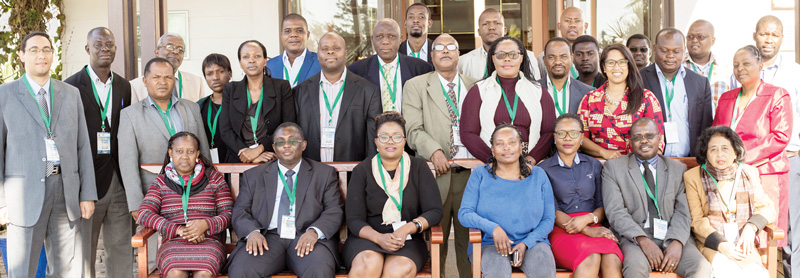
Science Commission hosts 20th biosafety meeting

The National Commission on Research, Science and Technology, this week in Walvis Bay hosted the 20th annual Biosafety meeting for National Project Coordinators (NPCs) of the UNEP-GEF, for the implementation of National Biosafety Frameworks. Delegates from more than ten African countries are attending.
The meeting is used by national project coordinators as a platform to compare and synchronise notes to improve the efficiency of national biosafety frameworks.
Speaking at the official opening ceremony, Mr. John Sifani, General Manager: Innovation, Technology and Development at the science commission, remarked; “The commission finds it important that implementation of our National Biosafety Framework is internationally benchmarked, yet locally relevant. As we embark on this process of implementing our respective Biosafety regulatory instruments, it is important that we take into consideration the view and aspiration of the African people. It is our hope that participants in this meeting will learn best practices from each other for effective implementation of their respective National Biosafety Frameworks.”
In the case of Namibia, the government has long recognized the importance of biotechnology and has acceded to the Cartagena Protocol on Biosafety to the Convention on Biological Diversity adopted by the Parties to that Convention. This was followed by the enactment of the Biosafety Act, 2006 (Act no 7 of 2006), which is administered by the science commission as the Competent Authority.
Amongst others, the Biosafety Act regulates genetically modified organism to protect biological diversity taking into account the unique safety and environmental risks posed by GMO.
Futhermore, the act defines the framework for research, development and the use of gene technology for genetic manipulation.
The Biosafety Act mandates the science commission to appoint the members of the Biosafety Council whose main responsibility is to draft and finalise the regulations that will guide, control and protect biological diversity. These regulations are yet to be promulgated.










































